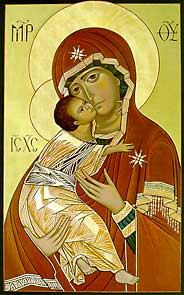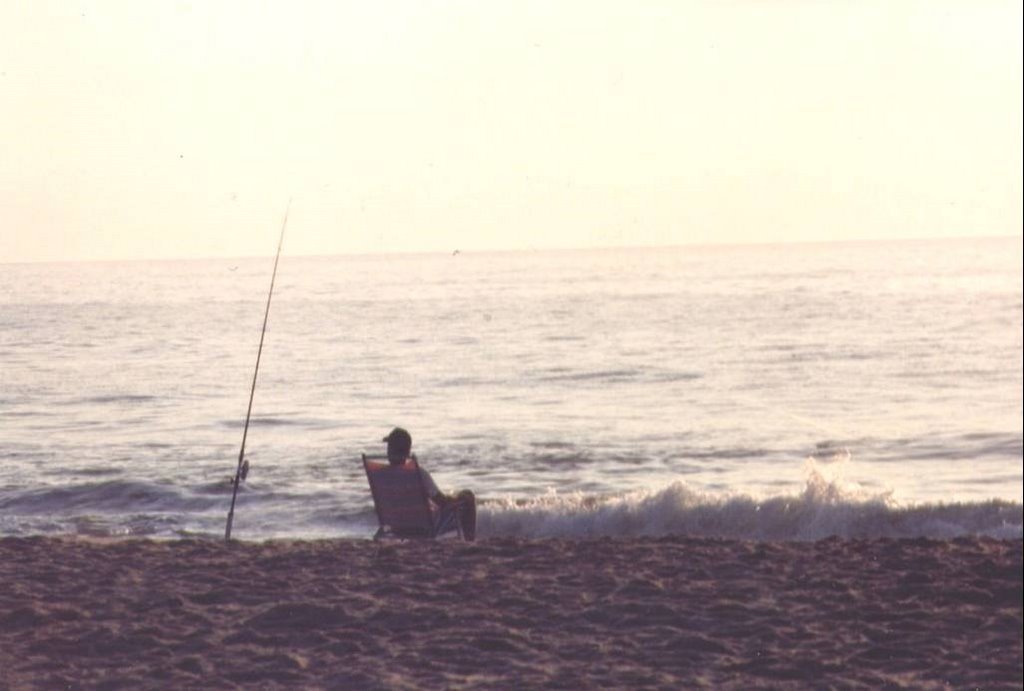Play nice!!!

This Template is generated via PsycHo and is Licensed.
| You are Agonistic |
 You're not sure if God exists, and you don't care. For you, there's no true way to figure out the divine. You rather focus on what you can control - your own life. And you tend to resent when others "sell" religion to you. |
Though at first glance this might cause some scandal, I don't think it should. Often agnosticism gets mixed up with atheism, but they're very different things. Or perhaps maybe it's just my interpretation of the word ....
The thing of it is, at least the way I see it .... maybe it's just me hooking into the second line of the description .... but I don't think you can figure out the divine. We just did an activity yesterday in some of my classes about "Who Is Your God" -- it listed maybe 15 or 20 different possibilities or definitions or images of God, and then I had the kids come up with one for their small group and create a new one for them, in 10 words or less.
This then took us into a whole discussion about how God is so far beyond any image, word, concept, thought, or anything else that we could concoct. Those all give us a taste, yes, but it's only a taste. Think of the little tiny sample spoon at Baskin-Robbins as opposed to the whole big ol' container behind the window --- doesn't even come close.
The whole idea of "faith" comes out of the fact that we can't "figure out the divine." If we could figure God out, if we could prove beyond a shadow of a doubt what God is like, there would be no need for faith. The Letter to the Hebrews (11:1) states that "Faith is the assurance of things hoped for, the conviction of things not seen"; Romans (8:24-25) follows with "Now hope that is seen is not hope. For who hopes for that which is seen? But if we hope for what we do not see, we wait for it with patience." By definition, faith is a "belief that does not rest on logical proof or material evidence." If we knew God, what happens to the mystery? If we can prove, show, explain -- what happens to the journey, the quest, the search?
Earlier, in a Blogger-deleted version of this post (not that I'm bitter -- GRRRRRR!!!), I found this very cool analogy, but none of my searching can bring it back to give the link. Anyway, it was along the lines of "Fear is to courage what doubt is to faith." Fear is not the opposite of courage, nor is doubt the opposite of faith. Courage requires us to face our fears just as faith requires us to face our doubts, but neither courage nor faith eliminate our fears or doubts. I think it was Anne Lamott who said that "Courage is fear that's said its prayers." It might reshape our fears, clarify, readjust our stance, but despite all the courage in the world, we'll still have some level of fear. If you've got doubt .... that means you're asking the question.
According to Fredrick Beuchner, "Faith is better understood as a verb than as a noun, as a process than as a possession. It is on-again-off-again, rather than once-and-for-all. Faith is not being sure where you're going but going anyway. A journey without maps. Tillich said that doubt isn't the opposite of faith; it is an element of faith ... If you don't have any doubts, you are either kidding yourself or asleep. Doubts are the ants in the pants of faith. They keep it awake and moving."
I feel like every answer I give my kids in class ends up beginning with those three little words: "We can't know." We can't know our purpose in life, or what heaven will be like, or how if Jesus is God than how is he his own son. So many of my comments start off with something along the lines of "The way I see it is ..." and then I explain my own perspective on sin, or free will, or God, or whatever else, always ending it with the disclaimer that "that's just how I see it, but it's different for everyone." All of which, I'm sure, is insanely frustrating for some of them, but it's the best truth I have to offer them. "So what am I supposed to believe?" ~ "There is no 'supposed to.' You have to figure that out for you. And that's how you make your faith your own."
"Of course it's hard. It's supposed to be hard. If it wasn't hard, everyone would do it. The hard is what makes it great."
Yeah, I teach religion. But I don't care whether the kids agree with what I'm presenting them or not. They do need to be able to tell me what the Catholic Church believes about Jesus and the gospels and whatever else, but they don't have to subscribe to it. Wherever they are is where they are, and that's completely, utterly, and totally fine by me. My only requirement is that they remain open to the journey, ask the questions, and explore for themselves.
After all, isn't that what it's all about? The journey, the quest, the search?
In opening his book God Hunger with segments from C.S. Lewis on "Longing" and Thomas Merton on "Looking," John Kirvan reminds me that the hidden nature of God is hidden for a reason. Speaking only for myself and my awareness of my slacker-esque tendencies .... I can pretty well guess that if I felt that I knew God completely, then I'd stop wondering. If I could always find God, no problem, I'd stop looking. If there was nothing left to figure out, I'd stop thinking about it. There has to be some mystery, some question, some unknown to provoke the exploration, the search, the delving ever-deeper into the depths. Otherwise, it runs the risk of falling the monotonous way of summer-time reruns.
Besides, as Junior Asparagus and Bob so wisely put it ... if "God is bigger than the boogie-man, he's bigger than Godzilla or the monsters on TV" ... well gosh, that's pretty big, isn't it? A lot bigger than any words that I could come up with. God for me (see, there I go again, just like in class) is so big broad abstract that there's no word, definition, image, or anything else that can do God justice. As we were talking about that worksheet in class, I was reminded of that old story about the blind men and the elephant ... six blind men are "shown" an elephant and they each describe it based on what they feel. Each man's comments are fully accurate -- based on what they experience -- but no comment really does the elephant any bit of justice.
One of my kids said that God is a puzzle, but we can't see the picture because we are all pieces.
Madeleine L'Engle was once asked: "Mrs. Franklin, do you really and truly believe in God with no doubts at all?" "Oh, Una, I really and truly believe in God with all kinds of doubts." But I base my life on this belief.
So, no, I can't know absolutely positively without a doubt if God exists ... but the way I see it, there's definitely something bigger than me working things out for me. I don't care if I can prove it or not ... I take it on faith. There's no true way to figure out the divine ... so I'll just keep right on asking those questions. I'll focus on what I can control -- my life ... and continue with the trust that things will happen the way they're meant to happen, and as long as I'm trying, perseverence has to count for something -- but that's just how I see it. And just as I resent having religion "sold" to me ... I'm not gonna sell it to my kids. I'll just open the door, throw out a couple questions, a little devil's advocate, and some unique ways of viewing things, and let them work it out for themselves.
'Cause it's different for everyone.
January 1st is celebrated as the Solemnity of Mary as the Mother of God in the Catholic tradition. Our priest this morning was commenting on how Mary, Mother of God, plays a very significant role in the Eastern Orthodox tradition. He told a story of attending an Eastern rite service with Fr. Prosper, one of his brother monks, once, and Fr. Prosper kept repeating "Theotokos" over and over again. Fr. Anthony later asked what that was.
He told a story of attending an Eastern rite service with Fr. Prosper, one of his brother monks, once, and Fr. Prosper kept repeating "Theotokos" over and over again. Fr. Anthony later asked what that was.
"Oh, Theotokos, the Mother of God. Without her, we would have none of this. The saints would have no names were it not for her."
Mary is the God-bearer. Mary said yes. By saying yes, she was the first disciple. Without her yes, we would have none of this.
For more information about Theotokos, follow the Greek link above.
Pictured is Our Lady of Vladimir, one of the most famous and most copied icons. This version was "written" by Sr. Mary Charles McGough, OSB, of the Duluth Benedictines; it also happens to hang on the wall of my bedroom. However, there are also plenty of other icons of the Theotokos.
[Incidentally enough, the Duluth Benedictines were just featured on the PBS Independent Lens series; the film was titled "Sisters: Portrait of a Benedictine Community" and aired a couple months ago. If, by chance, anyone happened to tape it and would be willing to share, I would love to be able to see it (I'm not sure if anyone at our place taped it or not.)]



Where'd it go?
"No One Deserves a Tragedy"
For all victims and perpetrators of violence .....
"You know neither the hour nor the day...."
Blogging the Monastic Triduum ~ Easter Vigil (Serv...
Blogging the Monastic Triduum ~ Easter Vigil (The ...
Blogging the Monastic Triduum ~ Holy Saturday (As ...
Blogging the Monastic Triduum ~ Good Friday (A Tim...
Blogging the Monastic Triduum ~ Holy Thursday (aka...